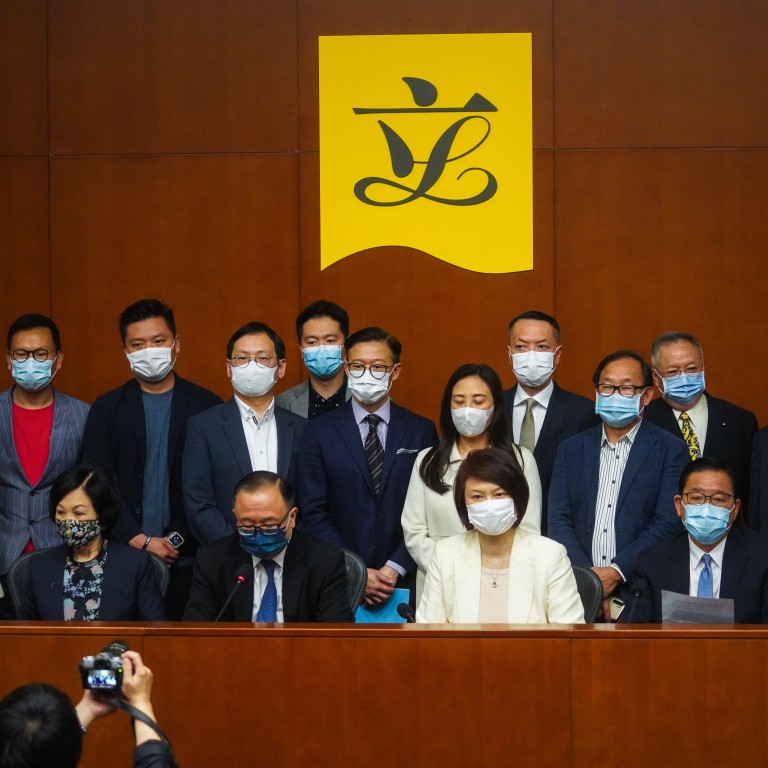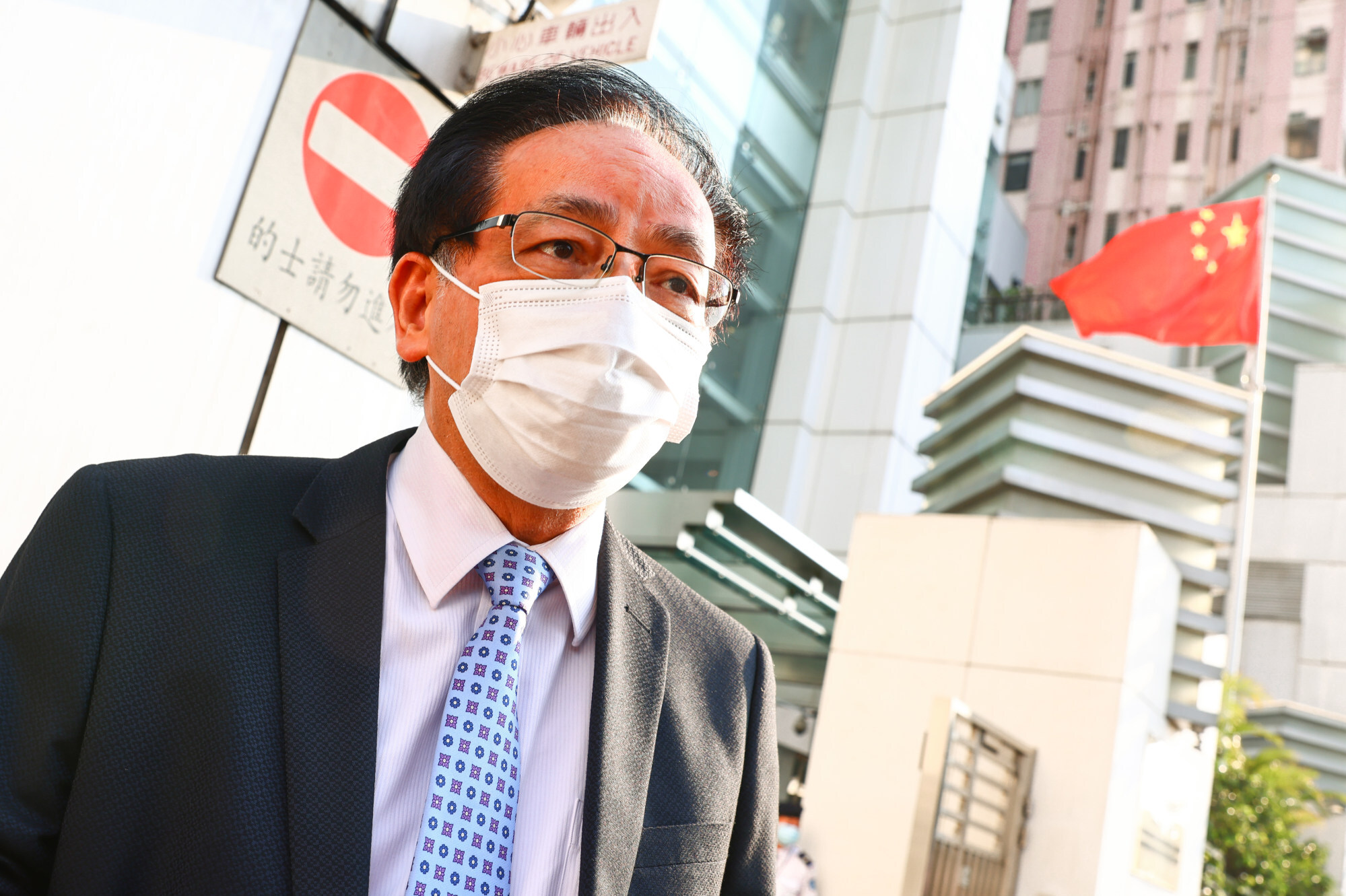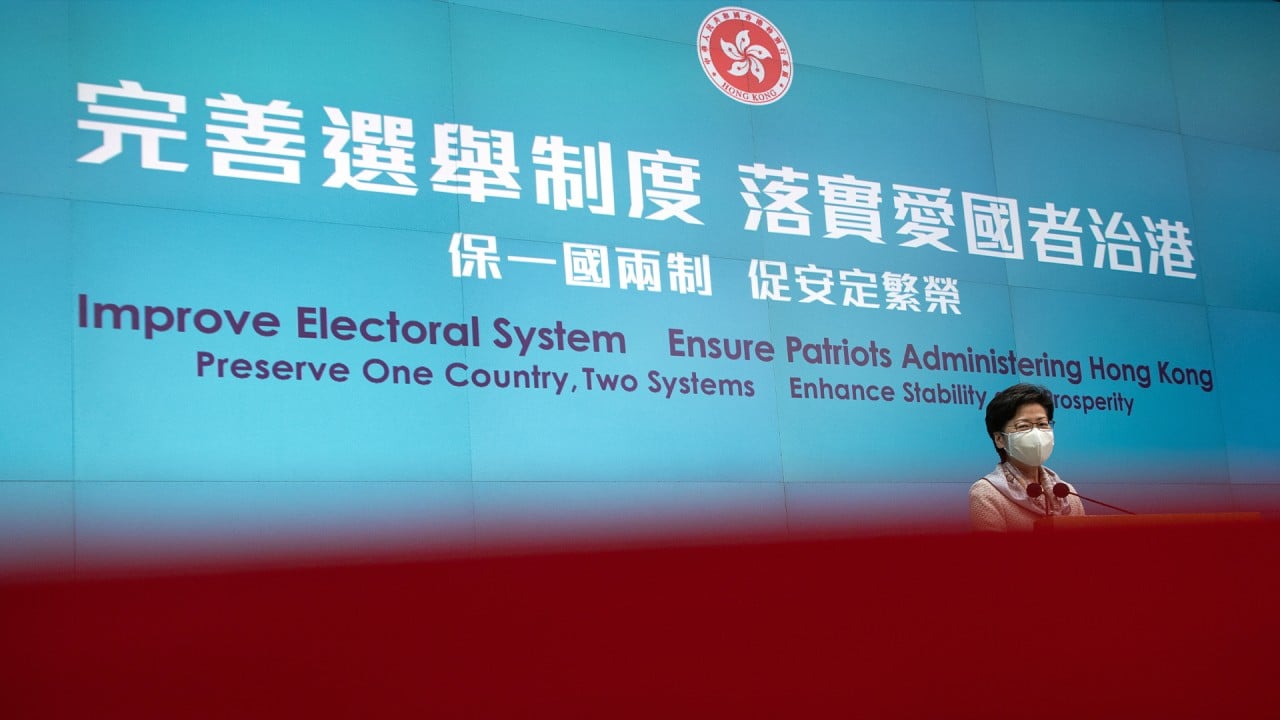
Pro-Beijing camp leaders admit Hong Kong government and bloc need to raise their game with excuses wearing thin after electoral shake-up
- They also have to do more to reach out to alienated supporters of the opposition who feel divisions have only deepened, members of the camp admit
- Second-generation tycoon says the pressure on government and pro-establishment bloc to perform is now greater than in the past after ‘all the political cleansing’
The pro-establishment camp and the administration in Hong Kong need to raise their game in the wake of the drastic shake-up of the city’s electoral system as now they have far fewer excuses not to perform, politicians from the bloc have conceded.
They also had to do more to reach out to the alienated supporters of the opposition who felt divisions had only deepened, members of the camp who spoke candidly to the Post said on Wednesday.
A second-generation tycoon, also from the camp and who spoke on condition of anonymity, said the pressure on the government and the bloc to perform now was greater than in the past after “all the political cleansing”.
A pro-establishment politician agreed, saying both the camp and the administration faced greater pressure to deliver after the shake-up.
“The zero-risk model adopted by the central government has unavoidably disappointed supporters of the pan-democrats,” the politician said. “After eliminating the risk of unpatriotic people entering the establishment, there is an urgent need to nurture more competent people to serve in the administration, the legislature and the Election Committee.
“The government needs to do more to engage with members of the public. Meanwhile, pro-establishment parties must raise their game by delivering high-quality policy studies, recommendations.”
Daryl Ng Win-kong, deputy chairman of property developer Sino Land, told the Post the pro-establishment camp should work even harder following the improvement in the city’s political environment.
Ng, also chairman of the Greater Bay Area Homeland Youth Community Foundation, called on the camp to unite and focus on matters affecting livelihoods and the economy, as well as issues polarising and dividing society such as housing.
“The pro-establishment camp should work hard and demonstrate to the public that, after enhancing the electoral system, the public will benefit,” he said. “Let citizens see that the pro-establishment is doing meaningful work that enhances Hong Kong and benefits Hong Kong citizens.”
Ng also urged the government to expedite identifying sites to increase the supply of public housing.
The National People’s Congress Standing Committee, China’s top legislative body, on Tuesday approved fundamental changes to Hong Kong’s electoral system, slashing the number of directly elected seats and ensuring more pro-Beijing representation in the city’s legislature.
The 1,200-strong Election Committee, formerly responsible only for choosing the city’s leader, will be expanded by 300 members to further entrench the pro-establishment camp’s dominance of the body. It will also send some 40 members into the Legislative Council. Directly elected Legco seats have been slashed from 35 to 20 while the trade-based functional constituencies have been slimmed down from 35 to 30.
The changes will not only curb the role of the opposition but also weaken the clout of the city’s tycoons who have long been regarded as “kingmakers” in previous chief executive races.
In the past, local property tycoons could count on direct and indirect representation to the tune of as many as 300 votes because their conglomerates could get seats in different sectors that make up the Election Committee.
But under the new framework, the commercial and industrial sector the tycoons used to control will lose 15 seats to a new subsector for small and medium enterprises, and one to a third commercial sector filled by mainland enterprises in Hong Kong.
On the mainland, Hong Kong’s high property prices were deemed a key reason for the anti-government protests triggered by the extradition bill two year ago. The ill-fated legislation, which was subsequently withdrawn, would have allowed fugitives to be sent to jurisdictions with which the city has no agreements, including the mainland. The protests subsequently morphed into the broader anti-government movement.
The city’s property tycoons found themselves under fire, as state media slammed them for sitting on massive land banks while Hongkongers could ill afford homes.
The second-generation tycoon said his main concern now went beyond the administration’s performance but also to whether policies such as on taxation and the overall business environment would be affected if Beijing opted for a populist approach to address deep-rooted livelihood issues.
“Businesses need some degree of certainty to plan and invest into the future,” he said. “I’m not saying policy will definitely turn for the worse. I’m saying that we just don’t know.”
He echoed the views of several other businessmen who said they wondered if the injection of mainland-linked members in the Election Committee meant the next target after the electoral revamp would be to solve such deep-rooted problems as unaffordable housing.
Vice-Premier Han Zheng, who oversees the city’s affairs, told a group of Hong Kong politicians in Beijing in early March the poverty gap and housing problems needed urgent attention.
Analysts said even entrenched pro-establishment parties feared their influence could be undercut by Beijing loyalists joining the revamped Election Committee.
The committee will have more than 400 seats chosen by mainland-affiliated bodies, mainland enterprises in the city, or groups that have other ties with the mainland, including 110 to be filled by Hong Kong members of “relevant national organisations”.
A leader of a pro-establishment group, which focuses on vying for directly elected seats in Legco, admitted they had no edge over other pro-Beijing groups in scrambling for seats in the Election Committee and the Legco seats chosen by the body.

Ip Kwok-him of the pro-Beijing Democratic Alliance for the Betterment and Progress of Hong Kong (DAB) agreed his party, known for its strong election machinery, needed to adapt to the new power structure to stay relevant.
“We also have a substantial number of members with business background and links to mainland organisations,” said Ip, co-founder of the forerunner of the DAB in 1992. “I’m confident the DAB is capable of winning Legco seats through channels other than geographical constituencies.”
DAB chairwoman Starry Lee Wai-king conceded the overhaul posed challenges to her party. “We need to reinvent ourselves to adapt to the new political realities,” she said, but added there were also new opportunities.
Lau Siu-kai, vice-president of the semi-official Chinese Association of Hong Kong and Macau Studies, said some veterans in the pro-establishment camp might feel upset as the central government was bringing in new challengers, such as those from mainland-linked groups.
“Established pro-establishment groups have to work harder. They have to show that they are capable of providing useful suggestions for the government and help it improve governance,” he said.



